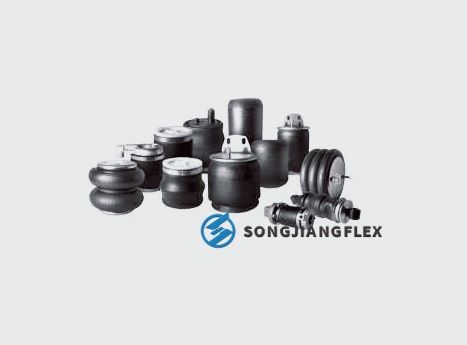Why Are Air Springs Essential Across Different Vehicle Types and What Benefits Do They Offer?
Different vehicles face vibrations and shocks that affect driving comfort and suspension lifespan. Air Springs provide a high-performance solution to minimize these impacts.
Air suspension dampers absorb vibrations, enhancing ride comfort, extending suspension life, and reducing noise. They are suitable for passenger cars, trucks, buses, SUVs, and specialized vehicles.
Let’s explore how air springs deliver advantages across various vehicle types and improve overall performance.
How Do Air Springs Enhance Ride Comfort in Passenger Cars?
Passenger car dampers significantly improve vehicle stability, reducing the impact of road irregularities and enhancing driver and passenger comfort.
Air springs optimize ride comfort through dampers, reducing chassis vibrations and interior noise for a smoother driving experience.
In passenger cars, air springs automatically adjust air pressure based on vehicle load, maintaining optimal wheel-road contact. This ensures a smoother ride, minimizes fatigue, and improves safety.
Why Do Trucks and Commercial Vehicles Need High-Performance Air Springs?
Truck air springs minimize body vibrations under heavy loads, protecting cargo, suspension, and vehicle structure.
High-performance air springs improve stability, reduce wear on suspension systems, and ensure safe, efficient transportation for commercial vehicles.
Air springs can be adjusted according to load conditions, reducing suspension fatigue and extending service life.
What Are the Benefits of Air Springs for Buses and Long-Distance Coaches?
Bus air springs enhance passenger comfort and reduce fatigue during long journeys, improving travel experience.
Air springs minimize body sway, reduce vibrations, and maintain ride smoothness, ensuring comfort for passengers.
By adjusting air pressure to match passenger load, bus air springs protect the suspension system, increase durability, and enhance safety.
How Do Air Springs Improve SUVs and Off-Road Vehicle Performance?
SUV air springs optimize off-road capability, ensuring stability and comfort on rough terrain.
Air springs help SUVs maintain body balance, improve handling, and enhance driving confidence.
Equipped with adjustable air springs, SUVs can fine-tune suspension stiffness based on terrain conditions, balancing damping and control.
Why Are Air Springs Critical for Specialized Vehicles?
Specialized vehicle dampers protect equipment and personnel, ensuring safety and operational reliability.
Air springs reduce vibration impacts on sensitive instruments, maintaining stability for ambulances and construction vehicles.
In specialized vehicles, air springs can integrate with active control systems to adapt to complex conditions.
What Advantages Do Air Springs Offer Over Traditional Dampers?
Air springs provide superior performance and flexibility compared to traditional steel or rubber dampers.
Advantages include adaptive adjustment, optimized vibration and noise control, longer suspension life, and improved ride comfort.
Air springs adjust air pressure to match load and road conditions, delivering optimal vibration absorption.
How Do Air Springs Extend Suspension System Lifespan?
Air suspension dampers distribute load evenly, reducing component fatigue and wear.
Properly installed air springs significantly lower suspension stress and maintenance frequency.
Air springs reduce impact forces between chassis and wheels, extending the life of shock absorbers and springs.
How Does Installing Air Springs Reduce Vehicle Vibrations and Noise?
Vibration and noise control are essential for comfort and safety across all vehicle types.
Air springs effectively isolate vibrations, reduce interior noise, and create a smoother, quieter ride.
Through optimized air chamber design and materials, air suspension dampers dampen vibration transmission while minimizing mechanical noise.
What Are the Selection Principles for Air Springs Across Different Vehicles?
Vehicle type, load, road conditions, and performance requirements determine the appropriate air spring choice.
Proper selection ensures air springs match vehicle specifications, optimizing vibration and noise control.
Selection factors include airbag size, load capacity, adjustment range, and durability.
How Do High-Quality Air Springs Help Reduce Vehicle Maintenance Costs?
Premium air springs lower failure rates, reducing suspension system maintenance requirements.
High-performance air springs extend component lifespan, reduce downtime, and minimize repair expenses.
Over time, high-quality air springs enhance ride comfort and decrease operational costs.
Air springs enhance comfort, reduce vibrations and noise, protect suspension systems, and lower long-term maintenance costs across vehicles.





